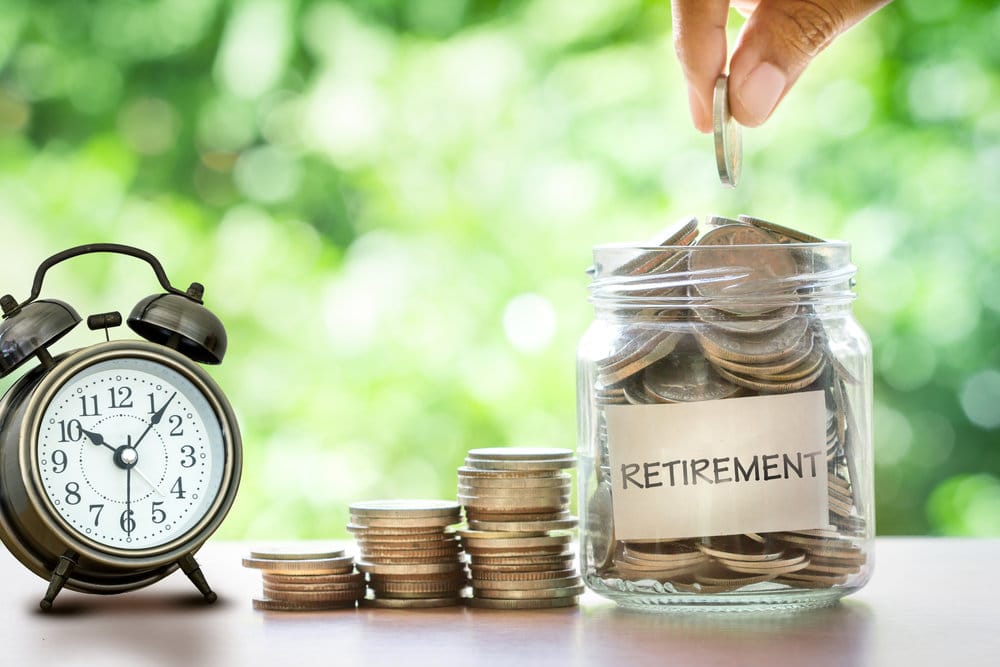Jasmine Birtles
Your money-making expert. Financial journalist, TV and radio personality.

Preparing for your retirement funds may feel odd if it’s a long way off – or worrying, if you’re close to retiring. Arming yourself with info about investment options helps take away the worry. One consideration is whether you should invest in a SIPP vs ISA. What are they, what’s the difference, and which is better?
There are lots of questions you’ll need to look into. But let’s take them one at a time.
Here, we’ll look at the differences between SIPPs and ISAs, and consider when and why they might be beneficial when thinking about your pension plans.

A SIPP is a Self-Invested Personal Pension, which allows the owner to self-manage their pension by investing it in various opportunities as approved by HMRC. Whilst there might be risks involved in a SIPP, because the investments allowed within it are verified by HMRC you can feel comfortable that they are strong opportunities for growth. You can put up to £40,000 into a SIPP every year.
The main difference between a SIPP and an ISA is that an ISA doesn’t necessarily need to be a pension product. ISAs are individual savings accounts, but there is unlikely to be a huge time restriction on when you can access them. This can of course make your money more accessible, if you want it. Another difference is that you won’t pay tax on withdrawals from your ISA, but you won’t receive tax relief on your contributions to it either.
Knowing whether to choose a SIPP vs ISA (or have both!) is all about weighing up the pros and cons.
There are lots of reasons to take out a SIPP. One is that anything you save will be topped up by 20% by the government, which is obviously a great perk. Another benefit is that you’ll get tax relief on your pension contributions. You’ll also be free from Capital Gains and Income Tax if your money is stored in this way.
Another great advantage of a SIPP is that, if you die, your beneficiaries can inherit your money. This is not the case with all pension plans.
You can save more money annually into a SIPP than you can into an ISA. This might be a good thing to think about, then, if you’re planning on saving a lot into your pension and are on a high enough salary to absorb this amount.
As with anything, there are a few disadvantages that you should be aware of if you decide to take out a SIPP. Of course, as its name suggests there will be a certain amount of self-management that you have to do with this kind of pension scheme. You’ll need to stay organised and on top of your decisions in order to get the best return.
You should also be aware that you won’t be able to withdraw any money from your SIPP until you’re 55. This is unlikely to be the case if you choose to take out an ISA instead.
If you do make a withdrawal from your SIPP after the age of 55, you will be liable to pay tax on it if it’s more than 25% of the total value of the fund. There are also limits on tax relief that come with this kind of pension, and (dependent on the provider) there may also be other fees involved.
As mentioned, the benefits of an ISA include the fact that your money is accessible and that you won’t pay tax if you wish to access it.
You can pay up to £20,000 per year into an ISA. This is lower than the amount that you can pay into a SIPP, but is still obviously quite high in terms of pension contribution.
Another benefit is that an ISA is likely to be cheaper than a SIPP, as traditionally these products charge lower fees.
Although you won’t be taxed if you decide to take money out of your ISA, you may lose any interest that you’ve previously acquired. This is likely to be the case if you’ve chosen a fixed anniversary ISA, and want to access it outside your set month.
As with a SIPP, if you have a stocks and shares ISA your investment could either go up or down. You’ll need to decide the level of risk you want to take if you’re planning on using a stocks and shares ISA to potentially grow your pension pot.

If you’re wondering whether you can have both a SIPP and an ISA, the answer is yes – you can.
You might want to think of your ISA as a rainy day fund that you can access if you really need to, even if you are ideally saving it for retirement. Pairing this with a SIPP, which you know that you can’t access until you’re 55, can offer security both for now and the future. This is actually a very popular choice for those who want to strike a balance between short and long term saving.
If you’re in a strong financial position, having both a SIPP and an ISA will allow you to save £60,000 per year tax-free. This could obviously set you up very nicely for retirement, if you can resist dipping into your ISA before then!
If you do decide to take out both products, make sure you’ve got enough time and knowledge to keep track of the investments involved.
Have you had experience saving for retirement with either a SIPP or an ISA? We’d love to hear your thoughts. Let us know over on the forums.
Need to know more about financial planning? Read these next!

Well explained article.
Always appreciate information on financial products as they can be confusing.